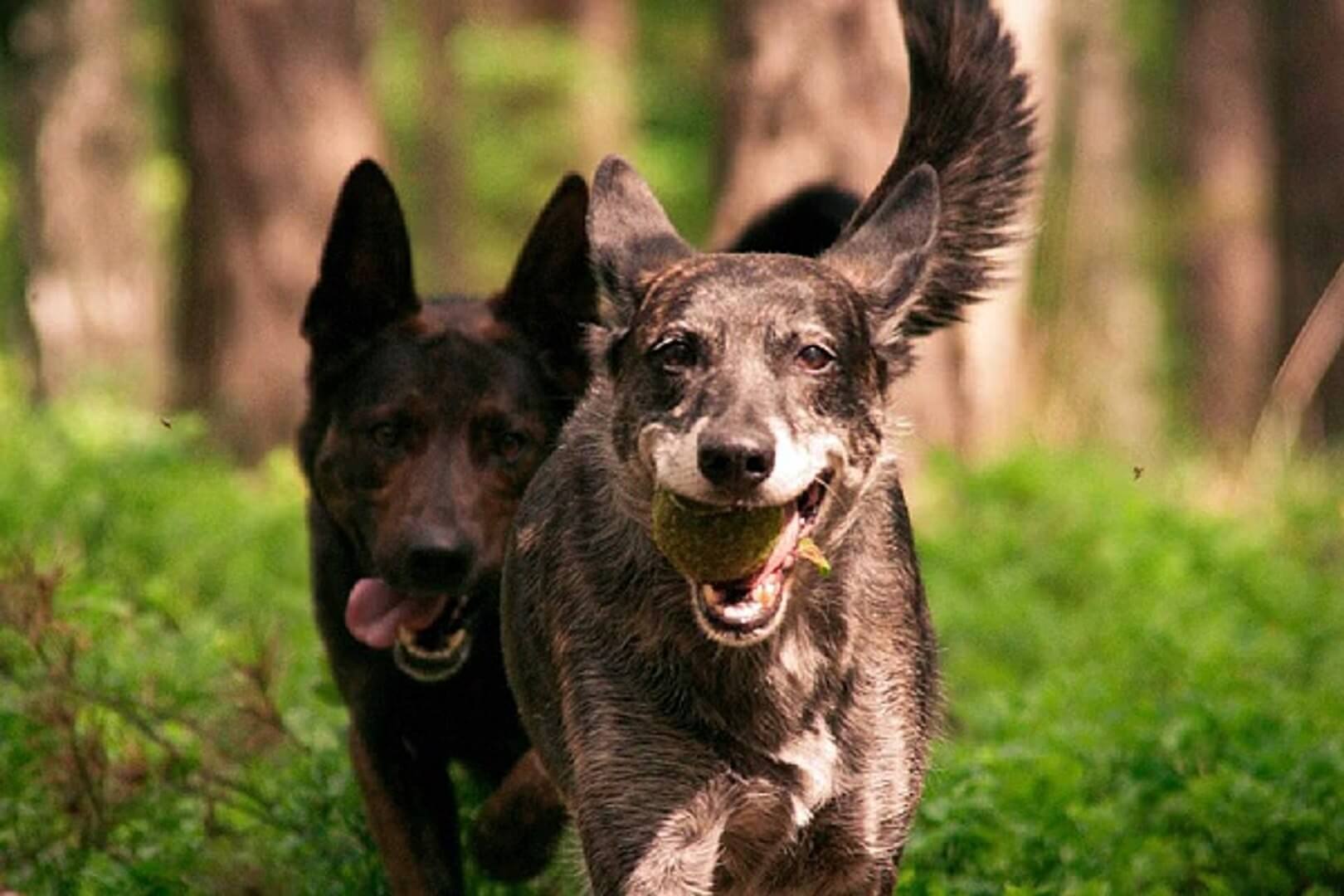A balanced diet for dogs not only includes the right food, but also an optimal supply of vitamins. Meat, fruit, and vegetables already contain many vitamins. In some cases, however, it makes sense to give the dog food supplements in the form of vitamin preparations. You can find out which vitamins are particularly important for dogs and how the dog is optimally cared for in our overview.
Vitamin A for Dogs

For dogs, vitamin A is important for the skin and night vision. The group of A vitamins includes retinol, retinal and retinoic acid. An undersupply can lead to dry skin and mucous membranes, acne, and increased susceptibility to infections in dogs.
The precursor to vitamin A is beta carotene. This is found in vegetables such as carrots and can be converted into vitamin A in the body. Vitamin A is found directly in the liver, fish and dairy products, and egg yolks. If the requirement is not sufficiently covered by the feed, it can be useful to give a natural supplementary feed such as fish oil with vitamin A.
Vitamin B for Dogs
The vitamin B complex is a group of eight different vitamins: B1, B2, B3, B5, B6, B12, biotin, and folic acid. The B vitamins play an important role in the dog’s metabolism and nervous system. With the exception of vitamin B12, however, dogs can hardly store the water-soluble B vitamins and must therefore be ingested regularly with their food.
Since vitamins from the vitamin B complex are contained in many feeds, dogs are rarely deficient. However, when fed raw, there may be a vitamin B deficiency, as the avidin substance contained in raw eggs and raw fish inhibits the absorption of B vitamins. As a vitamin cure or if the dog has an increased need, supplementary food with a vitamin B complex can be mixed with the dog’s food.
Vitamin B12 for Dogs
Vitamin B12 plays a particularly important role in the vitamin B complex. B12 is contained in animal products and is absorbed by dogs through food, but especially through organ meats such as the liver.
A vitamin B12 deficiency in dogs is mostly caused by gastrointestinal diseases or diseases of the pancreas and is associated with symptoms such as diarrhea, vomiting, and anemia. A B12 deficiency in dogs is treated through the targeted administration of vitamin B12 preparations. In the case of chronic diseases, injections may also be necessary, in which the veterinarian gives the fur nose by means of syringes vitamin B12.
Vitamin C for Dogs
Vitamin C supports the immune system, protects the cells, and promotes the absorption of iron for blood formation. Unlike humans, dogs can produce vitamin C in the body itself. The vitamin, therefore, does not normally have to be administered additionally.
If there is a vitamin C deficiency in the dog, a particularly high level of physical stress or a disease of the liver or kidneys may be the cause. Older and overweight dogs can also have an increased need for vitamin C. Since pure vitamin C (ascorbic acid) is poorly tolerated by dogs, it is advisable to cover the increased vitamin C requirement with food. Healthy fruits and vegetables that are high in vitamin C include rose hips, cranberries, and broccoli, among others.
Vitamin D for Dogs
Vitamin D supplies are very important to dogs for healthy bones, puppy growth, and good intestinal absorption of nutrients. Vitamin D is regarded as a sun vitamin, but the dog cannot synthesize it. This means that dogs need to get vitamin D primarily through their food.
Vitamin D is mainly found in animal feed such as fish and offal, for example, liver. If the dog is adequately fed, there is usually no vitamin D deficiency. An increased need for vitamin D in dogs occurs with kidney problems, during growth and during pregnancy and lactation of females When giving supplementary feeds with vitamin D, however, the dosage should be cautious: Overdosing can promote calcification in the body and trigger osteoarthritis or metabolic problems.
Vitamin E for Dogs
Vitamin E is required by the dog’s body cells because it protects the cells and supports the energy metabolism. Vitamin E is one of the antioxidants and is often found in dog food. If the dog still has a vitamin E deficiency, this is rarely recognized due to unspecific symptoms such as muscle weakness or growth damage.
Vitamin E is fat-soluble and is particularly found in cereals and high-quality oils such as linseed oil and salmon oil. Oils with vitamin E can be regularly mixed into the dog’s food to provide the pet with vitamins and contribute to a balanced diet. The recommended amount is between 0.5 and 2 milligrams of vitamin E per kilogram of the dog’s body weight.
Vitamin K for Dogs
Dogs need vitamin K for platelet formation and blood clotting. A deficiency can manifest itself as increased bleeding and poor blood clotting. The dog’s body can produce vitamin K itself, so there is usually no deficiency. Only in exceptional cases, for example after the administration of antibiotics or poisons, is the formation of vitamin K in the dog possibly disturbed.
In dog food, vitamin K is found in fish, liver, and green leafy vegetables, among other things. However, since the substance is synthesized in the dog’s digestive tract, it is usually not necessary to ensure that it is adequately supplied through the food.

